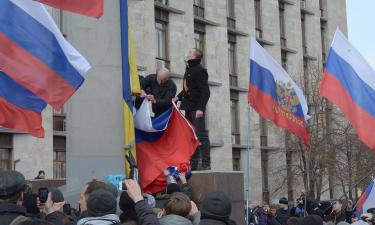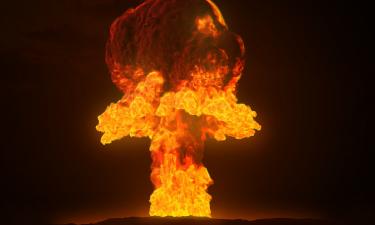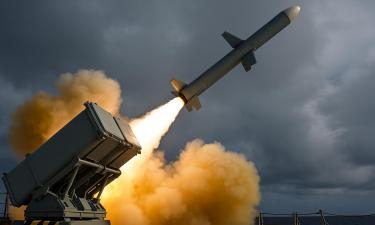Waiting For Peace in The Chess Family
 It seems that this year will not bring any peace to the chess world. The optimism surrounding the decisions reached at the FIDE (World Chess Federation) Congress in November 2002, which finally worked out specific regulations for determining the world's best chess player, was premature. The games, which were supposed to specify the players for the final, were postponed. Current FIDE World Champion Ruslan Ponomaryov (Ukraine) refused to play against ex-world champion from Russia Garry Kasparov, because he was not satisfied with some provisions of the current regulations. The fate of the other game between today's real chess king Vladimir Kramnik (Russia) and Peter Leko (Hungary) is still not clear. FIDE officially proclaims "We are all one family!" However, the governing body appears to be incapable of repairing the damage that was done in the 1990s or settling the acute contradictions that remain within this family.
It seems that this year will not bring any peace to the chess world. The optimism surrounding the decisions reached at the FIDE (World Chess Federation) Congress in November 2002, which finally worked out specific regulations for determining the world's best chess player, was premature. The games, which were supposed to specify the players for the final, were postponed. Current FIDE World Champion Ruslan Ponomaryov (Ukraine) refused to play against ex-world champion from Russia Garry Kasparov, because he was not satisfied with some provisions of the current regulations. The fate of the other game between today's real chess king Vladimir Kramnik (Russia) and Peter Leko (Hungary) is still not clear. FIDE officially proclaims "We are all one family!" However, the governing body appears to be incapable of repairing the damage that was done in the 1990s or settling the acute contradictions that remain within this family.
The consequences caused by Garry Kasparov's Professional Chess Association can still be felt. Vladimir Kramnik is not considered to be the legitimate world champion, because FIDE did not sanction his win over the "Beast from Baku" at the end of 2000. Several years ago FIDE President Florencio Campomanes stepped down from his post to make way for Kirsan Ilyumzhinov. The new man thought that the existing system of world championships was boring and proposed his own "knockout-system", which was more of an entertaining show, than a serious chess challenge. Four years ago this rapid competition, which consisted of a numerous mini-matches brought success to young Russian Aleksander Khalifman, who became the FIDE World Champion. In 2001 the title went to Indian Grandmaster Vishvanathan Anand and last year to young Ukrainian Ruslan Ponomaryov. The chess kingdom, split by Kasparov's ambitions and Ilyumzhinov's light-minded introductions, entered a period of diarchy.
However, having realised the danger posed by Ilyumzhinov's experiments, three of the best players in the world - Anatoly Karpov, Garry Kasparov and Vladimir Kramnik - joined forces and wrote an open letter calling for the protection of the game. The letter included an appeal to adhere to the respected traditions and canons of chess that had developed over decades. This "Three K" move, which was supported by the Russian Chess Federation, had a positive effect. The 2002 FIDE Congress, which took place in Bled (Slovenia), decided that all World Chess Championships would be held in compliance with unified agreed regulations. Kasparov rejected his previously held idea that the world title belonged to the champion alone. The decision was taken to hold a unifying final in November of 2003 to determine the best chess player on the planet. The winners of Ponomaryov-Kasparov and Kramnik-Leko semi-finals would meet in the final.
Unfortunately, a new champion will obviously not be crowned this year, as the two finalists have not yet been determined. It is hard to say what was the cause for Ruslan Ponomaryov's petulance, which resulted in the postponed match with Garry Kasparov, scheduled to take place in Yalta, i.e. the Ukrainian player's home country. However, it would be very upsetting for the undoubtedly talented Ponomaryov, as well as for the whole chess world, if FIDE found his claims to be groundless and selected another opponent for Garry Kasparov. One has to hope that this will not happen, and that the Ponomaryov-Kasparov match will go ahead, just like the Kramnik-Leko contest.
The chess kingdom is tired of the diarchy and confusion. It needs unity and a legitimate king. The game of chess is rich in tradition. When first World Chess Champion Wilhelm Steinitz was defeated by Emmanuel Lasker, he loudly greeted his vanquisher with the words, "Three cheers for the new World Champion!" Unfortunately, the spirit of chivalry seems to have disappeared from the chess world. Now is the time to remember FIDE's beautiful maxim that "We are all one family."
Valery Asriyan, RIAN
Subscribe to Pravda.Ru Telegram channel, Facebook, RSS!





